- Mahsa S. Y.
- Persian Tasty
- 400924 views
- 20 comments
Although plums aren't considered a "superfood" by nutritionists, they have many properties and extensive benefits for the human body and health—making them a good choice to be included in your diet. Aloo Bukhara is a plum that has been dried and so appears wrinkly, as it has lost most of its water content. Bukhara plum is in the category of Iranian dried fruits and nuts. There are many types of plums with different sizes and tastes.
Table of Contents
- What is Aloo Bukhara or Plum?
- What are the most Common Types of Aloo Bukhara?
- Nutritional Values of Aloo Bukhara
- What Are the Benefits of Aloo Bukhara?
4.1. Aloo Bukhara and Digestive Function Improvement
4.2. Aalo Bukhara and Cancers
4.3. Aloo Bukhara and Eye Health
4.4. Aalu Bukhara in Pregnancy
4.5. Aloo Bukhara and Bone Health
4.6. Alo Bukhara and Weight Loss
4.7. Alu Bukhara and Immune System - The Side Effects and Allergies Associated with Aloo Bukhara
- How to Store Aloo Bukhara
- Last words about Alubukhara
Alu Bukhara has a sweet taste and chewy texture. It is a fruit that provides many benefits if eaten regularly. It may help maintain body weight and prevent diabetes, obesity, and heart disease in people with normal blood sugar levels. It lowers cholesterol, improves blood circulation and quality, and helps to maintain proper heart health. It also improves vision, aids digestion—helping the body break down food more easily into nutrients—and maintains healthy skin by boosting collagen production. Aloo Bukhara can also combat cancer due to the large number of antioxidants present.
This blog post completely reviews Aloo Bukhara, also known by other similar names in different regions worldwide, such as Aalu Bukhara, Alubukhara, Albakara fruit, and other spells by different languages. Moreover, you will read "Alubukhara fruit in English," its common types, nutritional values, benefits of aloo Bukhara, side effects, dry aloo Bukhara benefits, and how to store Aloobukhara.
What is Aloo Bukhara or Plum?
The Aloo Bukhara in English name is "Plum." It is a sweet, juicy summer fruit that helps to keep one's health strong and powerful. Aalu Bukhara can be found in great quantities during summer with numerous benefits, making it popular among most people. Aalu Bukhara fruit belongs botanically to the family of Rosaceae and genus Prunus domestica and comes in a panorama of colors. So, Aalu Bukhara in English is Plum, which includes different types in vibrant colors.
What are the most Common Types of Aloo Bukhara?
The most common Aloo Bukhara, also known as dried plum or prune, types include greengage, cherry, Mirabelle, damson, sloe plums, and others. Although these are all considered different fruit varieties when grown in various regions worldwide; all types of Aloo Bukhara name in English Plum. They have a wide range of colors, including red-purple, yellow-orange, white-yellow, Persian plume, and so on. The definition of aalu Bukhara is any roundish, cylindrical fruit that is usually rich in tannins. In many cultures, Alubukhara fruits — in English plum, are also used to make jams due to their naturally sweet taste that can be enhanced further with some simple cooking techniques such as boiling or steaming. Furthermore, many Persian dishes consist of the common types of fresh or dry Aloo Bukhara fruit.
Nutritional Values of Aloo Bukhara
Aloo Bukhara fruit has low-fat content and high dietary fiber content. Alu Bukhara is rich in vitamins A and C and has high potassium, magnesium, and iron. Vitamin D, B6, B12, and calcium are also among its nutritional values. Alubukhara has often a sweet taste, although some varieties may be sour; it is chewy texture because of being rich in fiber. The fiber in dried plums (aloobukhara in English) has different properties and health benefits than in fresh fruits. Dried fruits are easily portable and can be consumed as healthy snacks. Some nutrients of dried fruits are vitamins, salts, minerals, fiber, carbohydrates, and fats. A quarter serving of Aalu Bukhara or dry aloo Bukhara can provide 12% of your daily fiber needs and 6% of your daily vitamin K needs.
Further, Aloo Bukhara contains manganese, potassium, copper, zinc, and calcium, along with beta-carotene, lutein, and zeaxanthin, which are very important antioxidants. These properties together make Aloo Bukhara a capsule of nutrients. This prune is useful for cleansing the blood, treating itching and psoriasis, relieving mood swings, and treating severe constipation.
Cyrus Crafts; Luxury & Unique Products
What Are the Benefits of Aloo Bukhara?
You can eat Aloo Bukhara for health benefits like losing weight or getting rid of diabetes. It also helps with high blood pressure and kidney and heart diseases. Furthermore, it is also suitable for pregnant women. The following are the best health benefits that come from eating this fruit:
Aloo Bukhara and Digestive Function Improvement
Prunes have laxative properties, which makes their consumption great for treating constipation. Because of the high fiber content in aloo Bukhara, they also help increase intestinal motility and improve digestive function—which is one reason they're an excellent choice to incorporate into any healthy diet. Plum juice, like date syrup, similar to Aloo Bukhara, has many fans and can relieve inflammation of the gastrointestinal tract (stomach and intestines) and thus prevent constipation.
Aloo Bukhara and Cancers
Aalu Bukhara contains large amounts of antioxidants that can prevent various types of cancer, including breast and liver cancers, by inhibiting free radical activity. Studies are needed to measure their effectiveness as an anti-cancer treatment in humans. And this is one of the greatest Albakara fruit benefits.
Aloo Bukhara and Eye Health
Aloo Bukhara's antioxidants, including lutein and zeaxanthin, counteract free radicals in the body. This eliminates the negative effects of these harmful chemicals—preventing oxidative stress that can cause age-related macular degeneration (AMD). Consuming prunes can reduce the risk of developing age-related macular degeneration (AMD) and thus improve your vision and increase your intake of vitamin A and beta-carotene. Other foods, such as saffron, are also effective in strengthening eyesight. We mention the properties of saffron briefly in this article on its many other effects.
Aloo Bukhara in Pregnancy
Aloo Bukhara is great for expecting mothers for several reasons: they have many vital nutrients, taste fantastic, and has many health benefits for the mother and the developing fetus.
Aloo Bukhara and Bone Health
The human body needs nutrients, salts, and minerals to grow and develop a healthy bone structure. Prunes can prevent osteoporosis and reduce the risk of various bone diseases. When insufficient calcium and minerals are in the bloodstream, the body draws calcium from your bones, weakening the skeleton and making it susceptible to fracture. Consumption of Aloo Bukhara provides your body with the necessary calcium and minerals it requires. Numerous studies have associated prunes with bone health, especially during menopause. This is because prunes are a rich source of phenolic compounds and flavonoids that help prevent bone degeneration, and their boron content plays an important role in maintaining bone density. Prunes can also help prevent osteoporosis in postmenopausal women due to their rich content of flavonoids such as caffeic acid and ruthenium. The potassium in prunes is beneficial for bone health, increasing bone density—especially in old age—and preventing bone loss due to ovarian hormone deficiency.
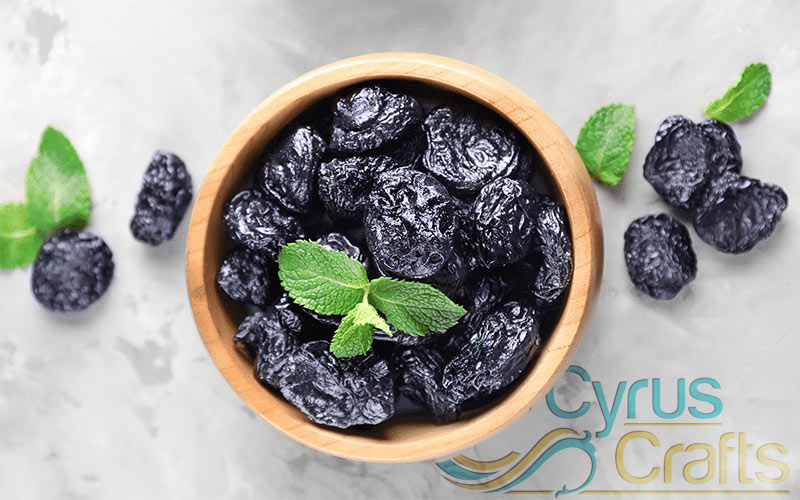
Aloo Bukhara and Weight Loss
Aloo Bukhara can be a healthy snack to provide the body with significant nutrients. The vegetable's low-calorie count and high fiber content help control hunger, so you feel full for longer, which helps in weight loss efforts. Plums have anti-inflammatory properties that help burn fat, while their fiber content is useful for controlling appetite and reducing the feeling of hunger. Plums also positively affect weight control by detoxifying the body and treating constipation. The citric acid in this fruit improves the function of the gastrointestinal tract and liver by relieving fatigue and muscle cramps, and helps with losing weight and slimming down body fat. Recent research has also shown that stone fruits such as plums prevent metabolic syndrome due to their bioactive compounds. Flavonoids and phenolic compounds such as anthocyanins, chloric acid, quercetin, and catechins reduce the risk of obesity.
Aloo Bukhara and Immune System
Plums contain high levels of vitamin C, which helps fight inflammation and infection. Plums (lets say Albakara fruit in English) can help boost your immune system, making them an excellent choice for those who often catch colds or the flu. Plums also contain large amounts of lectin—a nutrient that shows potent anti-influenza virus activity. You can use this amazing super food in your meals, as well as many types of Iranian dishes, and enjoy its great taste and benefits.
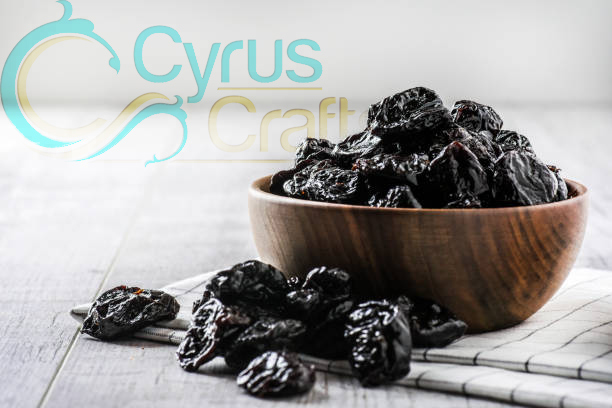
The Side Effects and Allergies Associated with Aloo Bukhara
Overconsumption of Aloobukhara and dry Aloo Bukhara can lead to certain complications: It contains oxalic acid, which can crystallize and form stones in the urinary tract due to overeating—and low water consumption. Aloo Bukhara side effects may interfere with medications as well.
How to Store Aloo Bukhara
When choosing Aloo Bukhara, pick fruit that feels heavy for its size. If left at room temperature, alubukhara skins will turn brown from oxidation; a quick rinse with water or lemon juice can prevent them from changing color. Uncut fruit should be stored in a plastic bag in your refrigerator for 2 to 3 days. Cut Aloo Bukhara should be wrapped tightly in plastic or a container and placed in your refrigerator for up to 3 days.
Last words about Alubukhara
Alubukhara, also called Aalu Bukhara in English, is a fruit with many health benefits and some side effects or allergies. Fresh or dry Aloo Bukhara benefits outweigh the possible side effects, so it is worth trying Alu Bukhara. In this article, you reviewed aloobukhara in English name, albakara fruit benefits, aloo bukhara side effects, its nutritional values, and how to store dry aloo bukhara.
If you want dried fruits like plums, apricots, figs, peaches, apples, date fruits, etc., you can visit this website's "Tasty" section and order any item you would like from any spot you live worldwide. CyrusCrafts will deliver all your orders by shipping or cargo, depending on your region of residence.


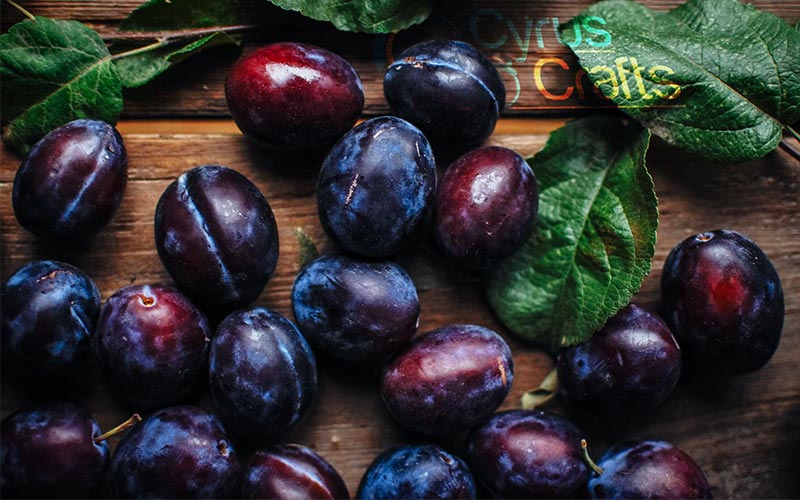










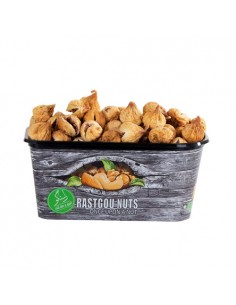



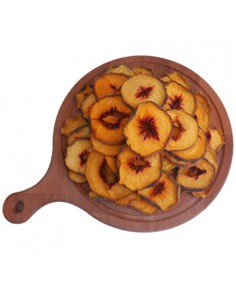

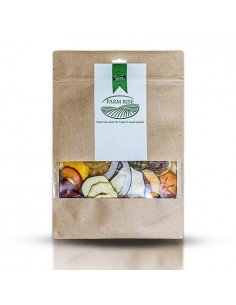

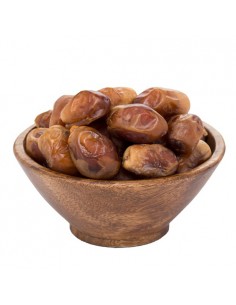

Comments (20)